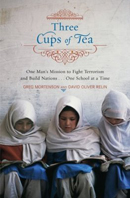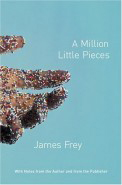
This guest post was written by author Magdalena Ball, whose most recent novel, Black Cow, will be released by Bewrite Books later this year. She lives in New South Whales, Australia. Visit http://www.magdalenaball.com for more information on her work .
* * *
We all know that fiction is a harder sell than nonfiction.
A perfectly valid selling tactic for fiction writers is to pick out the nonfiction elements in their work—to talk about the subject matter (eg my upcoming novel Black Cow is about a family that downshifts from a high flying life to a simpler more self-sufficient existence—there’s a big movement around that and these people might be a good target audience), or to appeal to readers who might mirror their characters in some way.
However, a more controversial “tactic” is to actually pretend that the events in the work are real.
That might involve calling your novel a “memoir” even if it’s not—such as James Frey’s notorious A Million Little Pieces, or Greg Mortenson’s Three Cups of Tea. If you’re a fiction writer, should you consider faking a memoir? Even if you’re caught, is the scandal itself a promotional tactic? After all, Frey would never have been featured so prominently on “Oprah” with a mere novel.
Here are three reasons why you might consider faking your memoir, and three reasons why you shouldn’t.
Why fake a memoir?
1. Readers prefer “facts” to truth.
I’m not entirely sure why this is the case, nor, being primarily a fiction reader myself, do I subscribe to it. However, as a fiction writer, I’m well aware of the public’s insatiable hunger for “what really happened” and the flow-on effect this has with publishers, who are generally more willing to take on memoirs than fiction. “Reality” sells. We want to listen in and peep through the keyhole.
2. There’s bound to be an element of fact and fiction in whatever you write.
Memory is complex, unreliable and subjective. We don’t all perceive reality in the same way. Any type of writing involves the creation of episodes and storylines—a creative, and primarily fictive process. All fiction is ultimately born out of perceptions and observations. There’s no memoir that is 100 percent factual, just as there is no fiction that is 100 percent made up. The very notion of a re-telling involves exaggeration and construct.
With such a fuzzy distinction between nonfiction and fiction, why shouldn’t genre be determined by the author and publisher as a marketing exercise?
3. Media coverage
That’s buzz, the thing that everyone needs. Buzz doesn’t only equal sales, although there is that.
It also equates to appearances on guest shows, potential film interest, and social media ratings. If you base your story on “true events,” there’s a built-in sensationalism that provides a greater chance of buzz.
3 Reasons to Not Fake It
1. Reputation

2. It erodes the truth
This is a moral point. The truth is a slippery eel, but we have to aim for it. If you subvert ethics in favour of marketing you diminish the whole notion of what is and isn’t real, and the world becomes a worse place. That’s a subtle thing, but no less powerful an argument for it. As authors, we have to try to focus on the notion of truth, in fiction and in nonfiction. If you begin by swearing that your work has a basis in fact that you know it doesn’t, then you are lying deliberately. That’s not a good thing for an art that has its basis in meaning making, whether or not you get caught or whether or not you get more press coverage from the scandal.
3. Truth has to trump fact
I’m biased of course. When I read and write, there is really only one thing that I’m looking for and that is some kind of truth. Truth is not the same as fact. This may be something that the general public has yet to cotton onto, but I know you know.
Reality television and talk shows don’t always show us the truth. What constitutes truth—that deep underlying sense of what rings a chord with readers—is far richer than “what really happened.”
Sharing the real meaning of events, whether real or imagined, is the heart of the writing process. This, of course, is where our promotional efforts should lie. If, at the moment, mass media is hungry for sensational events over deeper truths, that shouldn’t matter to those of us struggling to create truth. Use the medium that serves your real story (whether factual or imagined) best, and you’ll be able to promote it with the kind of conviction that only comes with truth.
So in summary, I wouldn’t advocate faking a memoir, but rather promoting your fiction and the underlying truth of what you’re saying, with the reverance it deserves. Because the real problem with faking it, is that it makes a fundamentally mistaken assumption that fiction is a less powerful form of art than memoir.
Nicely written and clearly explicated. Just a couple of caveats:
First: David Oliver Relin wrote “3 Cups of Tea.” While it is certainly based on Mr. Mortenson’s memories, Mr. Relin also relied on a number of interviews with a variety of people involved. Plus his own knowledge of the geography and demographics. And it is written in the 3rd person. Thus it was _never_ a memoir.
Second: By writing, “a more controversial ‘tactic’ is to actually pretend that the events in the work are real. That might involve calling your novel a ‘memoir’ even if it’s not—such as James Frey’s notorious A Million Little Pieces, or Greg Mortenson’s Three Cups of Tea,” you imply that YOU KNOW “3CofT” to be unreal or untrue, when that fact is still very much in dispute.
Yet I agree absolutely with your description of the effect of editors, marketing staffers, and the like ~ especially at major publishing houses. There was undoubtedly some of this stuff affecting “3CofT” ~ most notably the fact that, against Mr. Relin’s understanding with Viking, GM was (a) named co-author, and (b) was listed first!
Susan, thanks for your clarification and for your other observations. We can debate this question forever!
Nicely written, Magdalena.
I think I have enough trouble handling all the fiction than to even contemplate “fictionalising” my own (quite unremarkable) life!
Most “sacred texts” are viewed by many as factual histories when they are anything but. I fiction can be called a memoir then a tech manual can be then be published without peer review by placing it in the fiction section, cook books can be called memoirs and libraries would become basically useless especially as a venue for research. I have no respect for Oprah Winfrey for many reasons and the fact that she has been allowed to muddy the waters without being called to account is unconscionable. Everyone knows the Internet is a lawless frontier which to my mind is a good thing but it contains such a plethora of cross references it is ultimately a very useful tool.
Christina, thanks for your honesty. Your comment made me smile.
Remember what happened to James Frey on Oprah when the fictionalized his truth in a Million Little Pieces? It’s funny when you consider the endless interviews Oprah gave celebrities who came on to hawk their (undoubtedly ghost-written) memoirs without any hint of suspicion that they may have fictionalized their life stories just a little bit.
I guess in the publics’ and the media’s eyes high profile celebrities who (quite obviously) lie in their books are held to a different standard than average Joes who do the same…